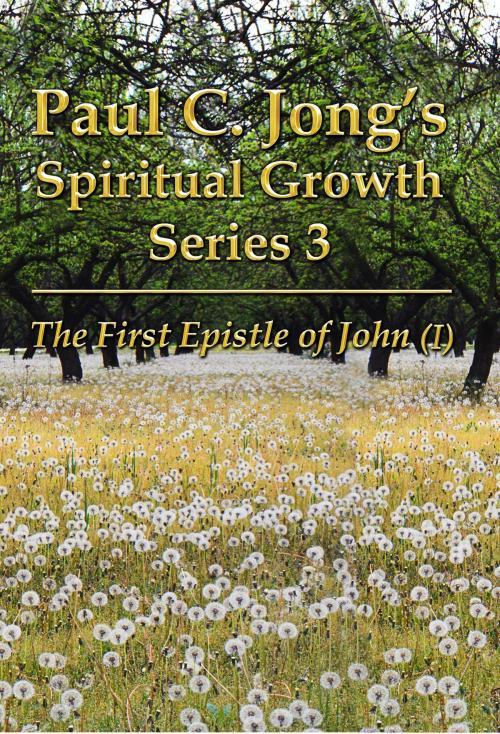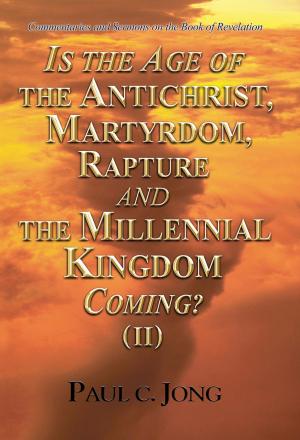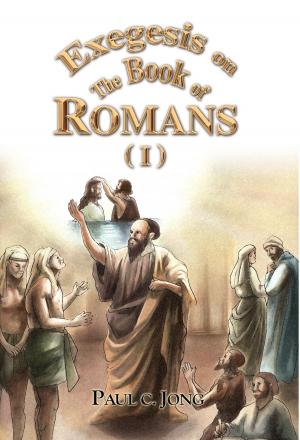The First Epistle of John (I) - Paul C. Jong's Spiritual Growth Series 3:
Nonfiction, Religion & Spirituality, Christianity, Christian Sermons| Author: | Paul C. Jong | ISBN: | 9788928220137 |
| Publisher: | Hephzibah Publishing House | Publication: | October 11, 2013 |
| Imprint: | Language: | English |
| Author: | Paul C. Jong |
| ISBN: | 9788928220137 |
| Publisher: | Hephzibah Publishing House |
| Publication: | October 11, 2013 |
| Imprint: | |
| Language: | English |
The Apostle John is one of the greatest spiritual leaders in Christianity. All three Epistles he wrote are still testifying the most general and spiritual Truth to the saints in God's Church. But there are some passages that are hard for us to interpret and understand.
We can give 1 John 1:8 as the first example of the difficult passages in John's Epistles: "If we say that we have no sin, we deceive ourselves, and the truth is not in us." This passage is hard to understand, especially when we apply it to the believers in the gospel of the water and the Spirit.
The second example is 1 John 1:9, "If we confess our sins, He is faithful and just to forgive us our sins and to cleanse us from all unrighteousness." This has been one of the most frequently quoted passages when sinners try to present the biblical ground of their prayers of repentance. Then, does this passage mean that sinners should confess their sins to be forgiven for the sins they have committed? Or, does it mean that the righteous who believe in the gospel of the water and the Spirit ought to confess their sins? We should believe this passage according to the interpretation of the Holy Spirit, the Author of the Bible, and to the intention of John the Apostle.
The third example of a difficult passage is 1 John 2:22, "Who is a liar but he who denies that Jesus is the Christ? He is antichrist who denies the Father and the Son." This passage is talking about who the enemies of God are. This verse clarifies that the enemies of God are those who don't believe that Jesus is God. And this also means that they don't approve the Father of Jesus Christ as God.
The fourth one is 1 John 3:6 that says, "Whoever abides in Him does not sin. Whoever sins has neither seen Him nor known Him." Here, when we see the phrase "Whoever abides in Him," this passage is given to the righteous who have been cleansed of all their sins by believing in the gospel of the water and the Spirit. The righteous cannot deny their faiths in any circumstances because they believe in the true gospel. Can there be some who really don't commit sins with their flesh? Everyone sins. But, the believers in the gospel of the water and the Spirit cannot commit such a sin as denying the true gospel.
The Apostle John is one of the greatest spiritual leaders in Christianity. All three Epistles he wrote are still testifying the most general and spiritual Truth to the saints in God's Church. But there are some passages that are hard for us to interpret and understand.
We can give 1 John 1:8 as the first example of the difficult passages in John's Epistles: "If we say that we have no sin, we deceive ourselves, and the truth is not in us." This passage is hard to understand, especially when we apply it to the believers in the gospel of the water and the Spirit.
The second example is 1 John 1:9, "If we confess our sins, He is faithful and just to forgive us our sins and to cleanse us from all unrighteousness." This has been one of the most frequently quoted passages when sinners try to present the biblical ground of their prayers of repentance. Then, does this passage mean that sinners should confess their sins to be forgiven for the sins they have committed? Or, does it mean that the righteous who believe in the gospel of the water and the Spirit ought to confess their sins? We should believe this passage according to the interpretation of the Holy Spirit, the Author of the Bible, and to the intention of John the Apostle.
The third example of a difficult passage is 1 John 2:22, "Who is a liar but he who denies that Jesus is the Christ? He is antichrist who denies the Father and the Son." This passage is talking about who the enemies of God are. This verse clarifies that the enemies of God are those who don't believe that Jesus is God. And this also means that they don't approve the Father of Jesus Christ as God.
The fourth one is 1 John 3:6 that says, "Whoever abides in Him does not sin. Whoever sins has neither seen Him nor known Him." Here, when we see the phrase "Whoever abides in Him," this passage is given to the righteous who have been cleansed of all their sins by believing in the gospel of the water and the Spirit. The righteous cannot deny their faiths in any circumstances because they believe in the true gospel. Can there be some who really don't commit sins with their flesh? Everyone sins. But, the believers in the gospel of the water and the Spirit cannot commit such a sin as denying the true gospel.















